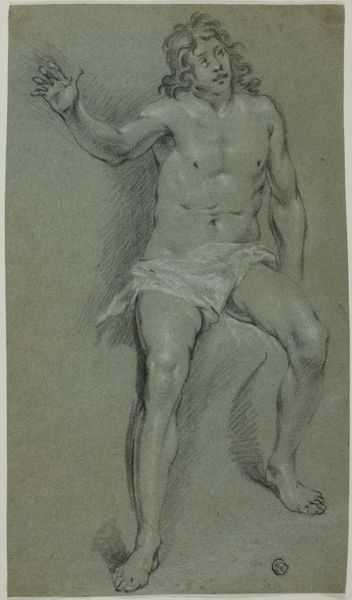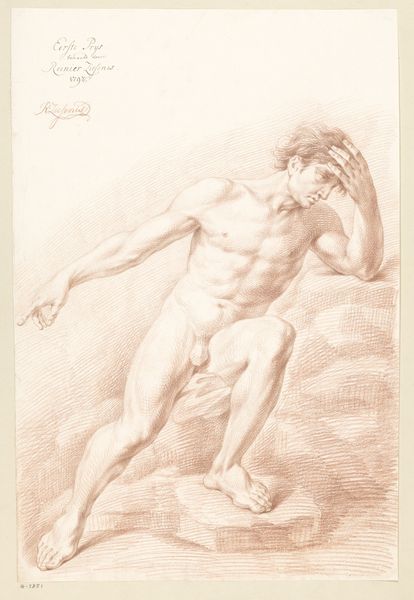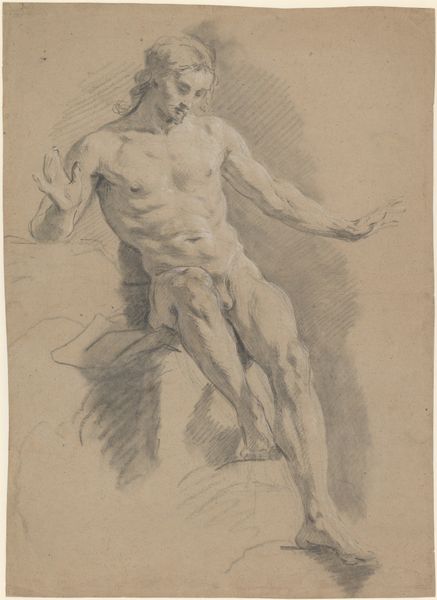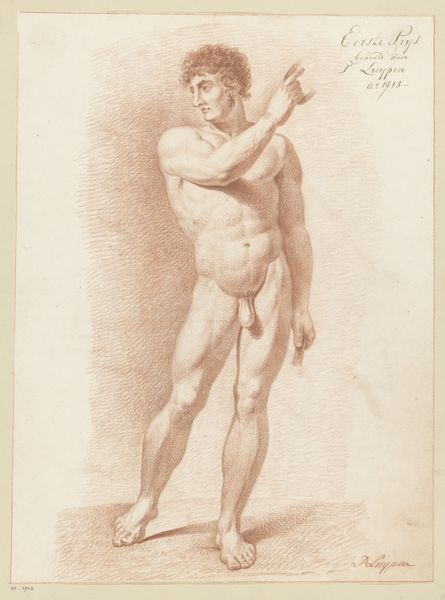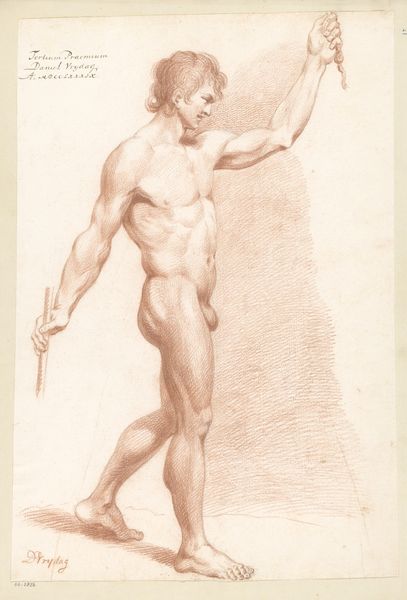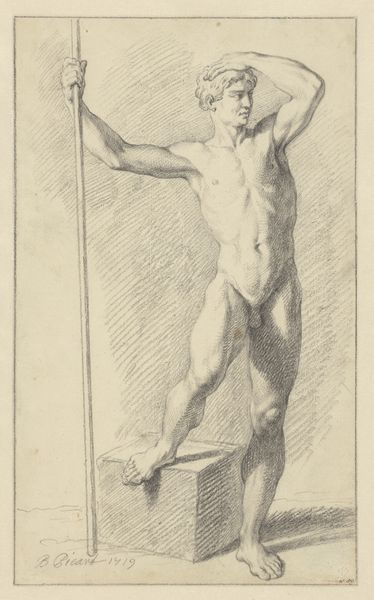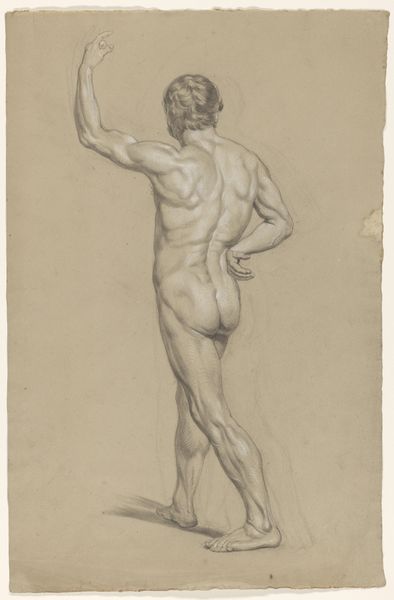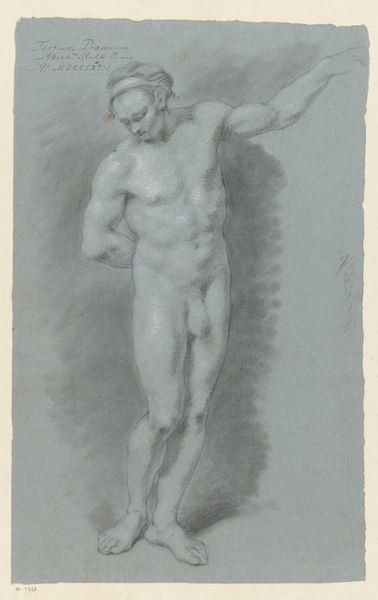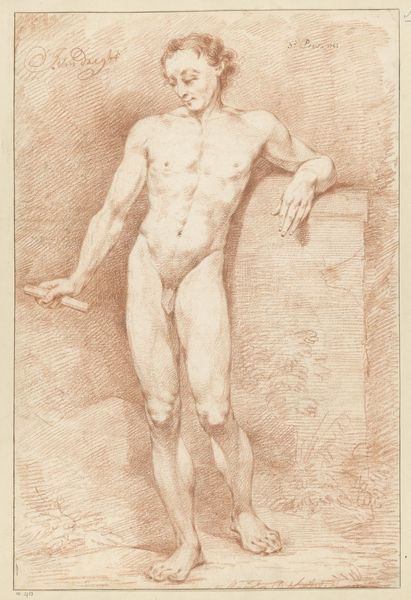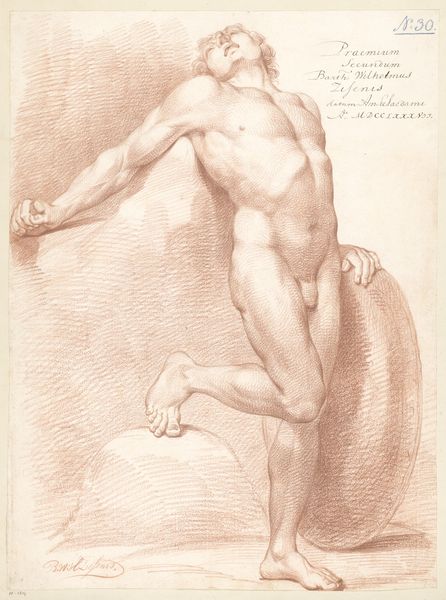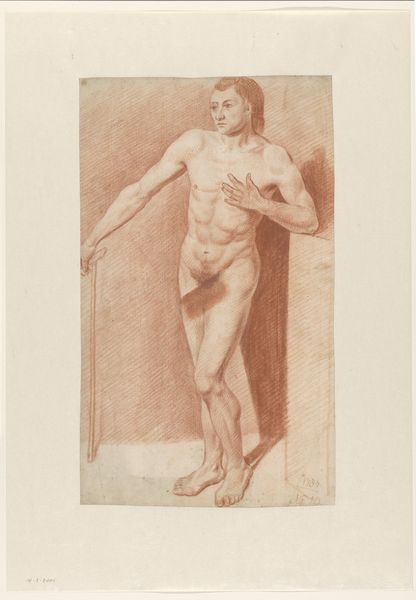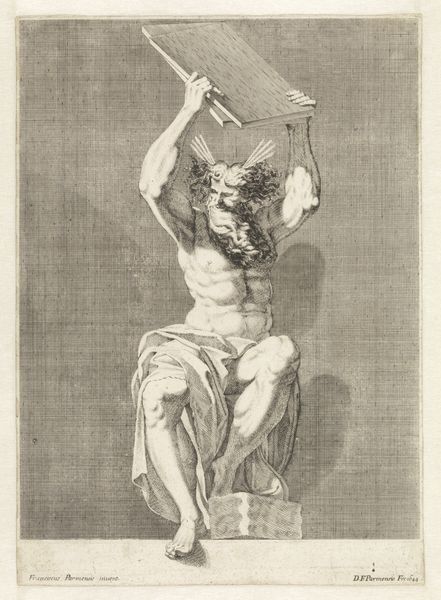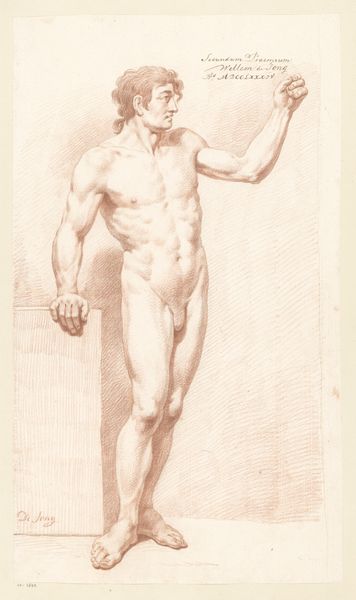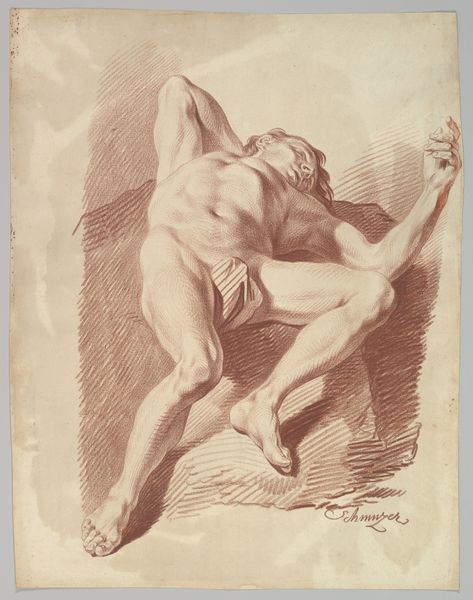
drawing, print, paper, pencil, charcoal
#
portrait
#
pencil drawn
#
drawing
# print
#
pencil sketch
#
classical-realism
#
charcoal drawing
#
figuration
#
paper
#
pencil drawing
#
pencil
#
portrait drawing
#
charcoal
#
nude
Dimensions: 503 × 388 mm
Copyright: Public Domain
Curator: It’s all about the light, isn’t it? That delicate touch, the soft rendering of the body. What do you make of this, then? Editor: Well, my first impression is the tension. The energy radiating from this figure, a sense of coiled strength right before action. A breath held. Curator: Precisely. This drawing, rendered in pencil and charcoal on paper, is titled “The Borghese Gladiator from the Statue in Rome.” John Downman created this around 1774. He was, of course, drawing from the celebrated antique sculpture, and seems to be reaching back to a different sensibility about the heroic figure. Editor: Absolutely, it feels like Downman’s engaging in a conversation with the Roman past, filtering it through an 18th-century lens. But who exactly was this gladiator? Was he a volunteer or forced into servitude? How does Downman engage or perhaps sanitize, the reality of enslavement and violence inherent in the gladiator's life? Curator: That tension between the ideal and reality fascinates me. There's a stillness here that belies the violence you’re suggesting, but it's the sort of calm right before the storm, no? Like a held chord. This figure, powerful as it is, exists as a study, not as a monument to brute strength. More dream, less scream. Editor: I agree it is incredibly evocative, it transports me to this space where physicality, power, and vulnerability intersect in really complex ways. A sort of ballet of power and fragility. Curator: Exactly! And isn't that where the magic of art resides? In the unresolved questions, the shimmering possibilities… Editor: Indeed. This piece is not just about aesthetics, it's about raising crucial questions on social inequalities, then and now. It’s in conversation with systems of oppression. Curator: So much to unpack in this drawing! It serves as a reminder that art's true value often lies beyond the surface. Editor: Leaving us to reflect on the meaning we assign to strength, to beauty, and to the echoes of the past.
Comments
No comments
Be the first to comment and join the conversation on the ultimate creative platform.
